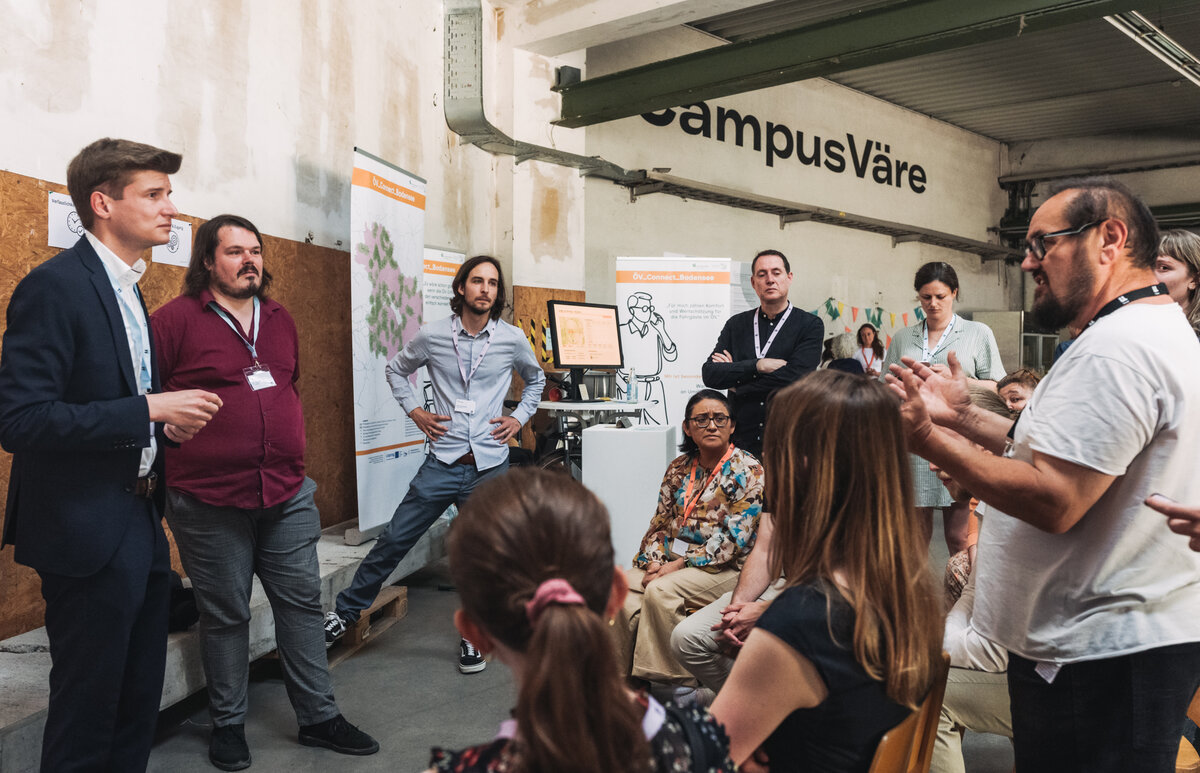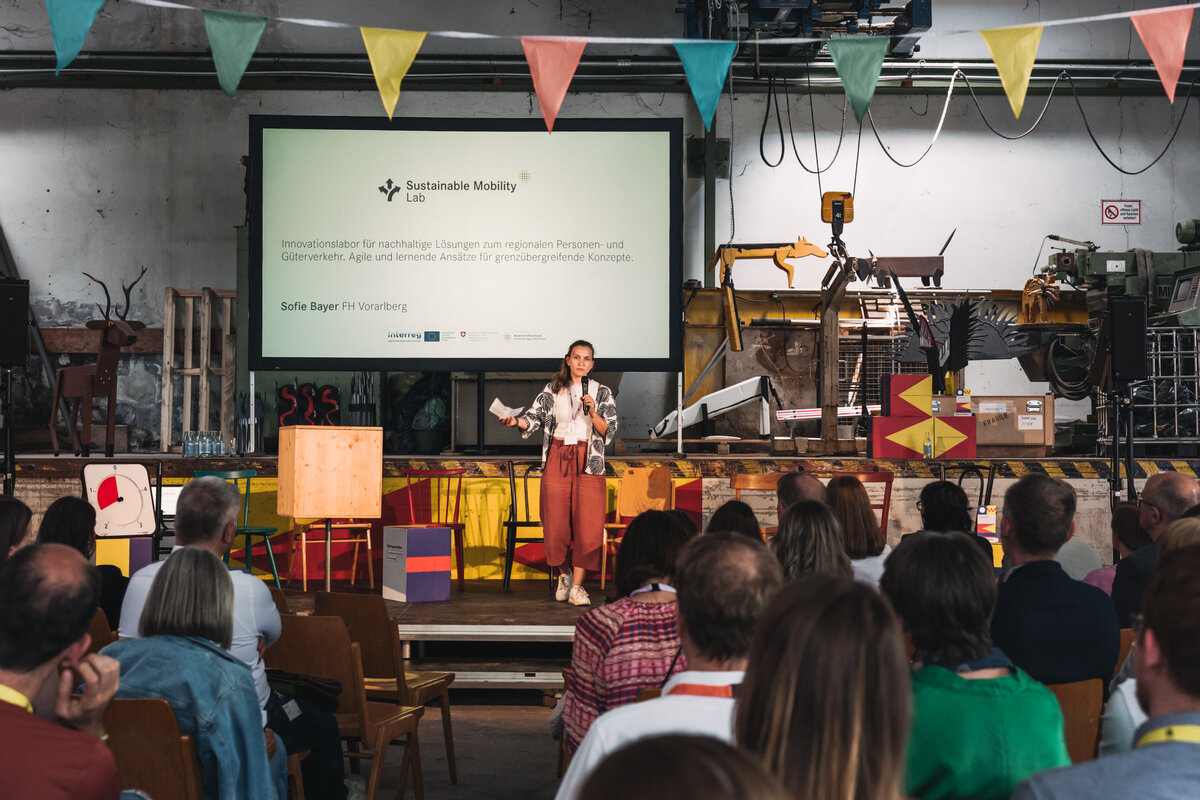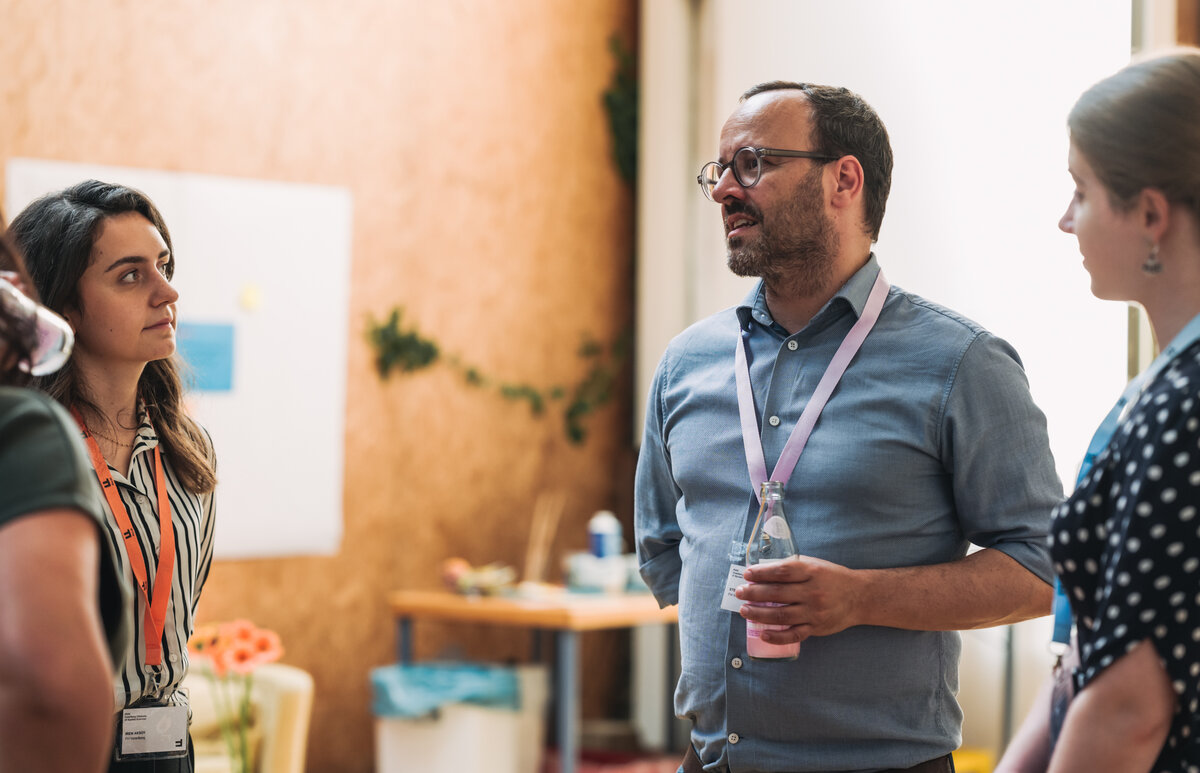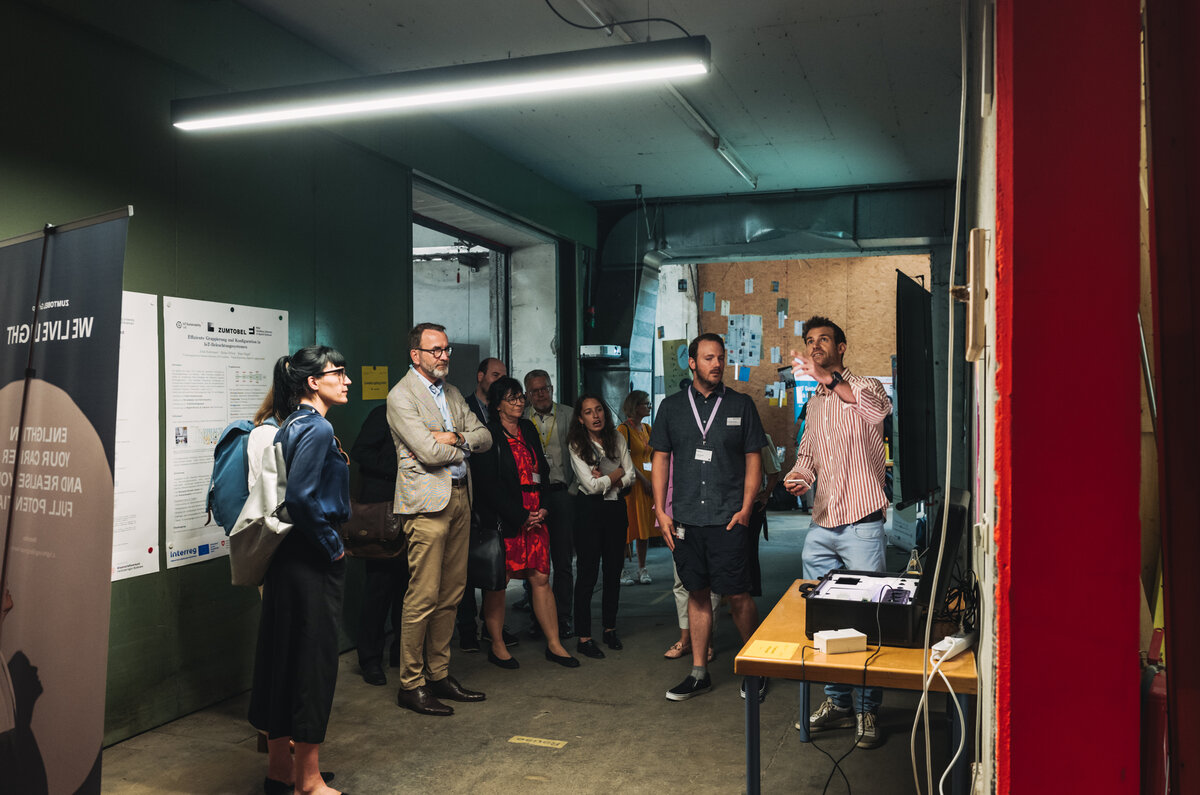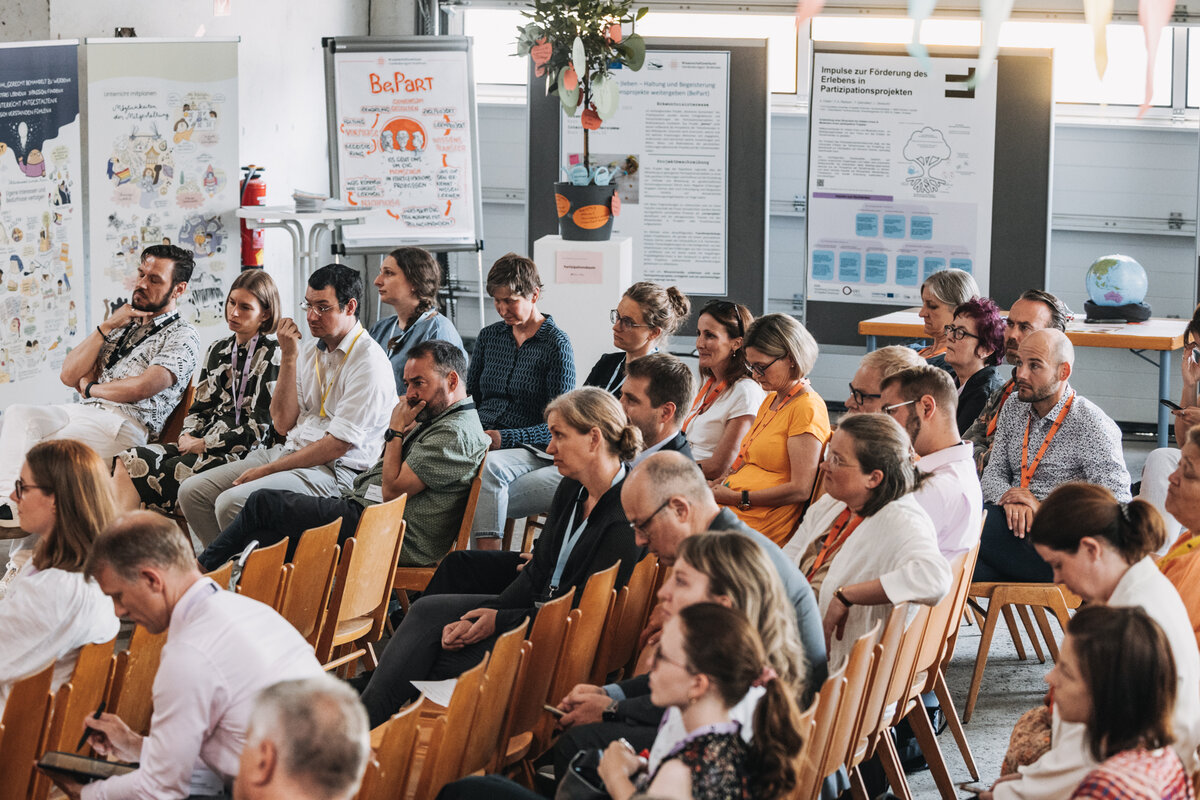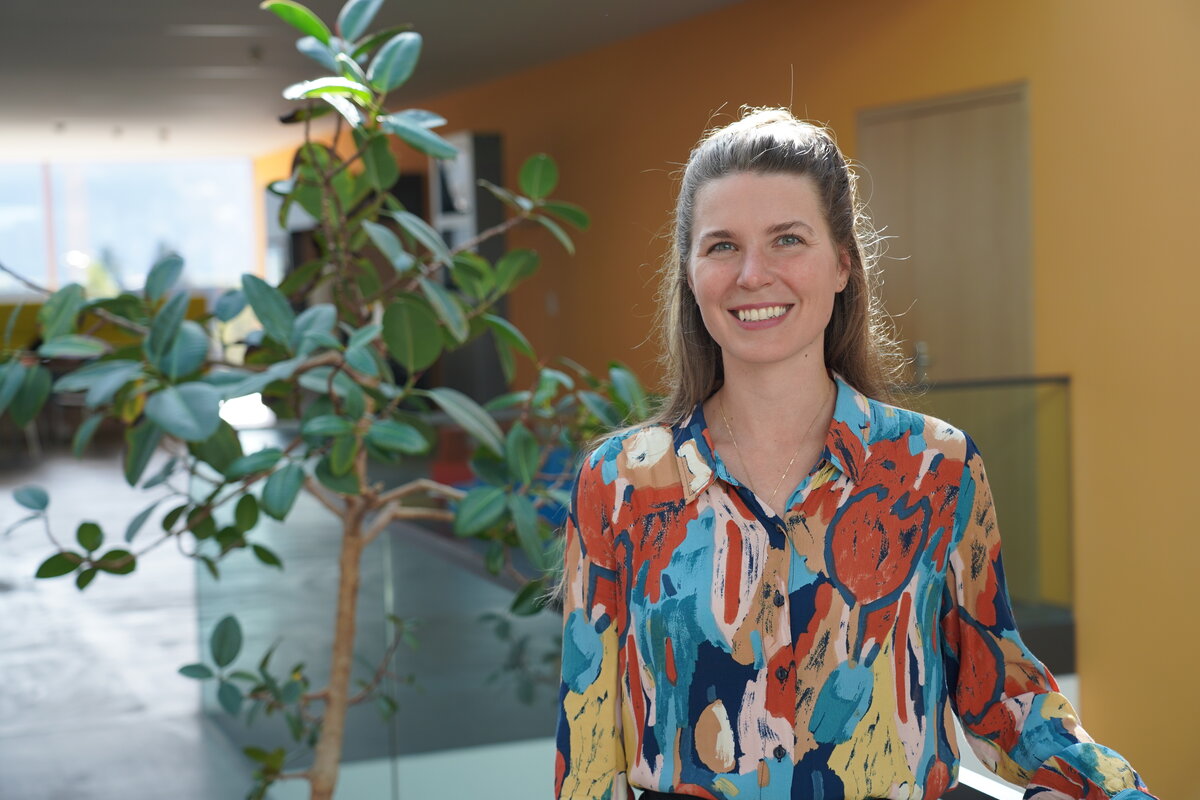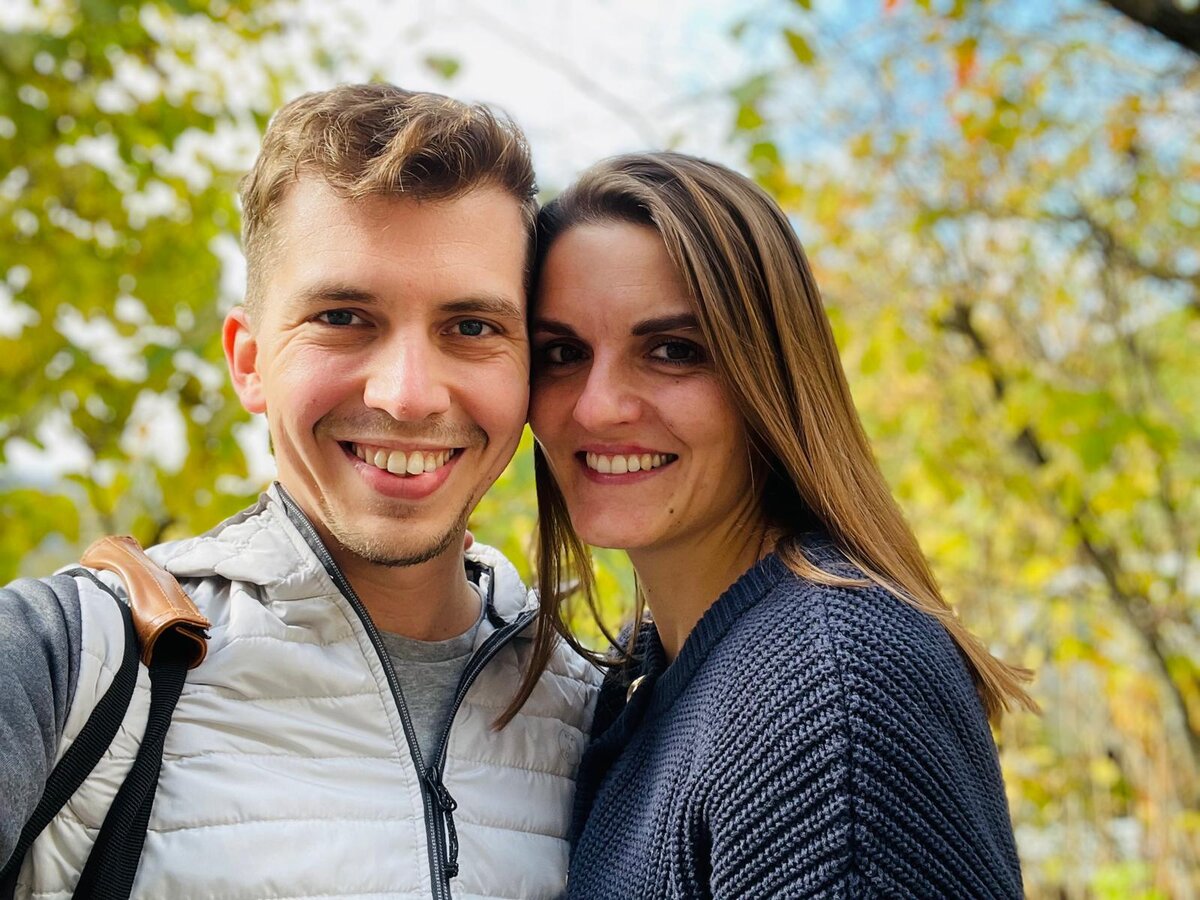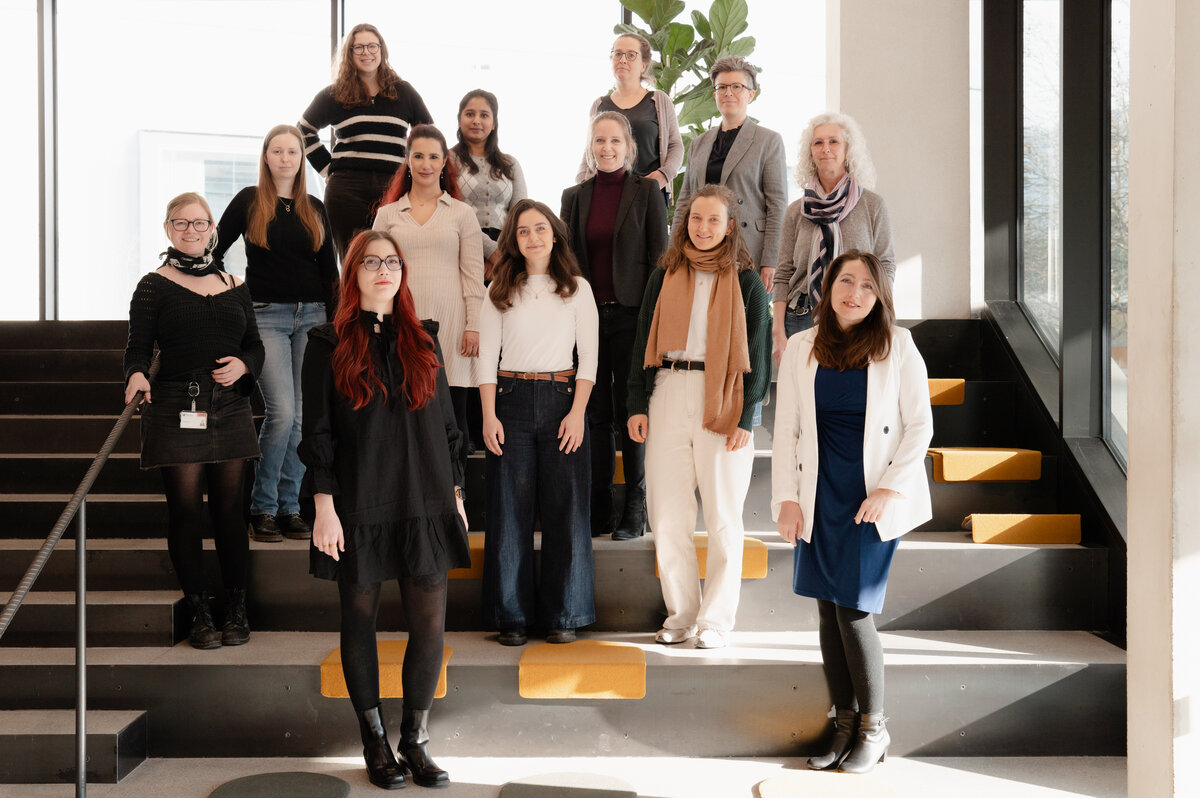Three innovation labs - one goal: sustainable solutions for the region at Demo Day 2025
01.07.2025The labs, which will run until 2027, are initiated and supported by the Science Network of the Four-Country Region of Lake Constance and funded by the cross-border EU funding program Interreg VI Alpenrhein-Bodensee-Hochrhein.
The FHV's Business Informatics research center is involved in each case as a leading or co-designing institution.
The Demo Day marked the halfway point of the project for the three innovation labs.
Initial results show how science and Management are working together to develop new solutions:
- Circular Lab: Rethinking the circular economy
Jointly with the University of St. Gallen, the FHV is leading the Circular Lab, which is developing new business models and solutions for a sustainable agriculture, food and textile industry. At the Demo Day, the team presented, among other things, the collaboration with FREITAG lab.ag: the development of a biodegradable truck tarpaulin that can be used several times as a tarpaulin and textile product. "At the Demo Day, we showed how the circular economy works in practice. For example, with circular materials for textiles and tools for sustainable spatial planning," explains Steffen Finck, Co-Lead Circular Lab FHV. - IoT Sustainability Lab: Intelligent systems for buildings
Under the leadership of the HTWG Konstanz, the lab is researching the sustainability of IoT (Internet of Things) technologies in the building sector with the participation of the FHV. Together with Zumtobel Lighting, the FHV team presented an energy-efficient, adaptive lighting system that takes into account actual lighting requirements and room usage. "We are investigating how IoT can improve the sustainability of buildings and how we can mitigate the negative effects of IoT use, such as increasing Energy or resource consumption," explains Michael Hellwig, Lead IoT Sustainability Lab. - Sustainable Mobility Lab: Shaping mobility together
The lab led by the FHV works with companies, municipalities and citizens to develop innovative mobility solutions for the region. Among other things, an on-demand mobility concept with automotive supplier ZF Friedrichshafen AG was presented at the Demo Day, which is designed to enable more flexible passenger transport in rural regions - efficiently, networked and ecologically. "Cross-border mobility in the four-country region brings with it complex requirements. We network regional players and develop practical solutions in the areas of operational mobility management, commuter mobility and sustainable logistics," explains Martin Dobler, Lead Sustainable Mobility Lab FHV.
Focus on cross-border cooperation
The event also provided space for political dialog: Representatives from governments, universities, EU institutions and companies discussed how cross-border cooperation can succeed in the long term. "Initiatives such as those shown today are key to ensuring that innovations actually survive on the market. And that's exactly what we need if we want to be successful as a region in international competition," emphasized Marco Tittler, Vorarlberg's State Councillor for Business and Management.
Conclusion: Demo Day 2025 made it clear how joint projects from research and practice are advancing sustainable change in the four-country region and thus contributing to the design of a sustainable region.
Interested in a collaboration or further information on the innovation labs?
The project managers look forward to hearing from you:
- Circular Lab: Steffen Finck: +43 5572 792 7122, steffen.finck@fhv.at
- IoT Sustainability Lab: Michael Hellwig: +43 5572 792 7112, michael.hellwig@fhv.at
- Sustainable Mobility Lab: Martin Dobler: +43 5572 792 7126, martin.dobler@fhv.at
